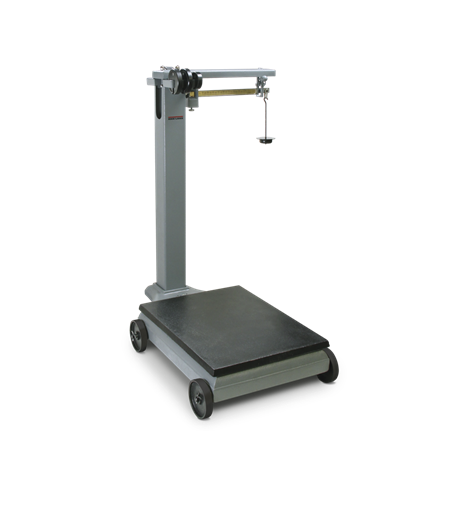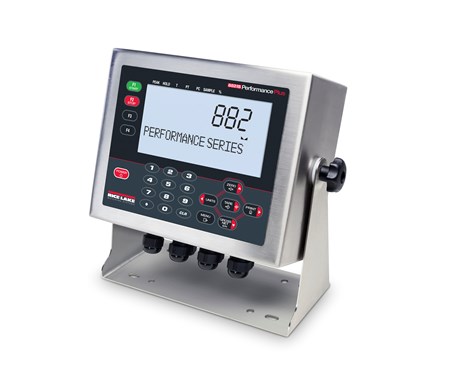Is the website displaying in the correct language? Please confirm or select a different language.
Your region has been set automatically. Please confirm or select a different region.
The Propane Industry and Recommendations for Scales
The National Conference on Weights and Measures (NCWM) and the National Institute of Standards and Technology (NIST) released the publication “2022 NCWM-NIST National Survey on 20 lb LPG (Propane) Cylinders” with the Weights and Measures Divisions. This survey represents practices of exchanging, selling, filling and manufacturing 20-pound propane tanks by measuring actual tare weight accuracy compared to the cylinders’ stamped tare weight.
Study Findings
When a consumer purchases a propane tank, they are being charged based on weight. If the weight stamped on the tank isn’t accurate, the price at the end of the process is inaccurate.
Most tank manufacturers will stamp the tare weight on the tank before it’s filled with propane and sold to consumers or retailers. Over time, a tank’s weight can fluctuate when it is repeatedly reused. This means when a tank is refilled, the tare weight is often not checked or the tank is not weighed correctly, making it possible to overfill or underfill the tank. This results in the consumer paying an inaccurate price and creates safety risks.

Out of the thousands of cylinders that were evaluated—both new and used—less than half of the new cylinders, and even fewer of the used cylinders, were in compliance with the existing DOT tare weight requirements. However, after December 28, 2022, almost all of the new cylinders and more of the used cylinders will be in compliance due to the updated DOT regulations.
Many direct sale refilling locations were evaluated throughout the country, and nearly 10% of those locations were improperly verifying the safe fill level of 20 pounds. Out of those refilling locations, most of them passed the overall requirements, but some still exceeded the safe fill level.
Many consumers return a cylinder still containing between 1 and 5 pounds of propane. This causes the consumer to lose money due to an inaccurate weight check.


Scale Considerations for Propane Tanks
Having an accurate scale to weigh something such as a 20-pound propane tank is critical, not only for fair commerce but safety as well. A tank that has been overfilled with propane can be dangerous. Measuring and weighing devices used to check propane tanks must meet Handbook 44 requirements, and it is essential to have the right kind of scale for this type of environment.
A Legal for Trade scale means that items such as cylinders and tanks weighed on a scale can be legally sold based on their weight. Both the scale platform and digital weight indicator must have a Certificate of Conformance from the National Type Evaluation Program (NTEP) to be considered Legal for Trade, and the scale must also meet requirements for Handbook 44.
The NCWM developed Handbook 44 to help provide equity, fairness and accuracy of measuring and weighing equipment. This market of fairness is enforced through policies adopted by federal, state and local jurisdictions to provide accurate and traceable measurements. Not only do these scales need to meet Handbook 44 requirements, it is also crucial that they are intrinsically safe.

Having a Legal for Trade scale that is intrinsically safe is important when weighing a substance that could cause combustion. When a piece of equipment is intrinsically safe, it means that it is incapable of causing sparks or combustion. It must limit electrical current, voltage and heat to reduce the risk of explosion. This is critical to have in a scale when weighing something such as a propane tank or cylinder.
Regardless of what type of scale is being used, it is important to calibrate regularly. There are different methods of scale calibrations, but the only Legal for Trade method is to use calibration weights. Review NIST Handbook 44 to ensure the correct class and amount of weight for the capacity of a scale will be used for calibration procedures.
Accurate Scale Recommendations
Rice Lake Weighing Systems provides intrinsically safe equipment to meet the demands of applications such as tank manufacturing and filling. These products include the RL1200 Series portable beam scale and the 882IS Performance™ Series digital weight indicator.
The RL1200 IS portable beam scale is a cost-effective, cast-iron design to help deliver durability and portability. Well suited to intrinsically safe applications, the all-mechanical design is NTEP certified and has a capacity of up to 1,000 pounds.
The 882IS indicator is designed for hazardous locations that are potentially explosive. Its auto-ranging power supply enables wiring to a single AC conduit line and seal from the safe area. This indicator can be paired with most bench and floor scales, including the RL1200 scale.
Rice Lake offers a variety of cast iron and stainless steel calibration weights to properly calibrate any scale. Our state-of-the-art metrology labs apply carefully designed calibration methods and equipment for the most precise calibrations.

If an intrinsically safe system makes sense for your application, Rice Lake offers a wide variety of bench scales and floor scales. Rice Lake’s scale experts are available for consultations if you have questions about the right system for your application.



 My Account
My Account

